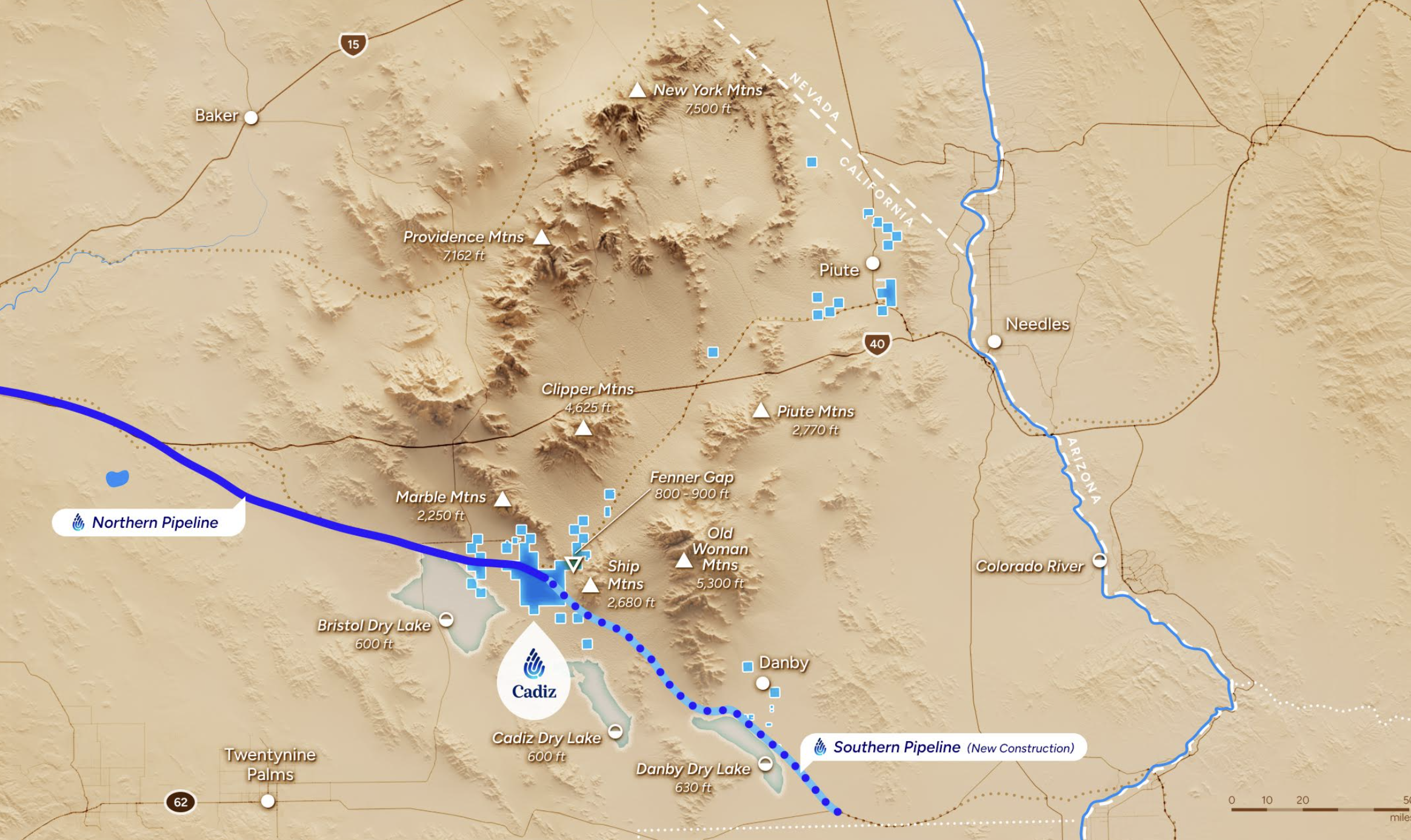
- Details
- By Levi Rickert
A Letter of Intent between the Lytton Rancheria and Cadiz, Inc. was announced today, outlining the tribe’s plan to invest up to $50 million in a groundwater banking project in the Mojave Desert, known as the Mojave Groundwater Bank.
This $50 million investment will be the largest water infrastructure investment off tribal land by any Native American tribe in history. The arrangement empowers Indigenous communities to take a central role in decision-making and investment in crucial water projects.
The partnership between Cadiz and Lytton marks a groundbreaking collaboration in water resource management, with tribes holding a majority ownership stake in the Mojave Groundwater Bank. The ownership structure of the deal empowers Indigenous communities to become part of the decision-making process and investments in vital water projects.
The Mojave Groundwater Bank will feature over 300 miles of pipelines connecting to California's water transportation network, delivering new sources of clean water supply and storage to underserved, disadvantaged, and tribal communities in the Mojave River Basin, the Colorado River Basin, and California’s Inland Empire—regions that currently lack access to clean, reliable water.
The Mojave Groundwater Bank is a major clean water infrastructure project being developed by Cadiz in California’s Mojave Desert. Located at the base of a 2,000-square-mile watershed system fed by rain and snow from the New York and Providence mountains, the underground reservoir currently holds an estimated 30 to 40 million acre-feet of water—more than the combined storage capacity of Lake Mead and Lake Powell, the two largest surface reservoirs in the United States.
The Lytton Rancheria, which is headquartered in Santa Jose, Calif. and 550 miles from the project in southern California, the investment is more than a monetary investment in the tribe’s well-being. One strong selling point for the Lytton Rancheria is the anticipation other tribes will be able to use the Mojave Groundwater Bank water pipeline to supply other tribes that have had difficulty obtaining water.
“As a tribal government, we take our responsibility to be good stewards of the land and the environment seriously. Working with other tribal governments, Cadiz and other responsible environmental investors to develop a sustainable, responsibly managed water source in these shifting times is something we want to be involved in.,” Lytton Tribal Chairperson Andy Mejia stated, “With tribal involvement in the direction and operation of this project, we can ensure that all people have a chance to benefit from this critical water resource."
For Cadiz Chief Executive Officer and Chair of the Board Susan Kennedy, the project gives the tribe leverage to control its own destiny when it comes to their source of water supply.
“This gives the tribe, instead of being a zero sum fight over existing water rights, they now own the biggest water source in southern California,” Kennedy said to Native News Online. “It gives them a lot of leverage to trade water north and south.”
She said Cadiz is honored to create this groundbreaking partnership with Lytton to develop this important project for the benefit of underserved and Indigenous communities.
“Access to clean water will be the single greatest challenge many communities in California and the Southwest face in the coming decades. We are grateful for the chance to be part of the solution,” Kennedy said.
Cadiz anticipates beginning construction of the Mojave Groundwater Bank in 2025, with initial water deliveries projected for as early as 2026.
More Stories Like This
Native News Weekly (August 25, 2024): D.C. BriefsUS Presidents in Their Own Words Concerning American Indians
Federal Judge Orders ICE to Halt Use of Pepper Spray, Arrests of Peaceful Protesters in Twin Cities
Tunica-Biloxi Cultural Leader John D. Barbry Walks On
Next on Native Bidaské: Federal ICE Activity in Minneapolis: Ruth Buffalo’s Perspective
Help us defend tribal sovereignty.
At Native News Online, our mission is rooted in telling the stories that strengthen sovereignty and uplift Indigenous voices — not just at year’s end, but every single day.
Because of your generosity last year, we were able to keep our reporters on the ground in tribal communities, at national gatherings and in the halls of Congress — covering the issues that matter most to Indian Country: sovereignty, culture, education, health and economic opportunity.
That support sustained us through a tough year in 2025. Now, as we look to the year ahead, we need your help right now to ensure warrior journalism remains strong — reporting that defends tribal sovereignty, amplifies Native truth, and holds power accountable.
 The stakes couldn't be higher. Your support keeps Native voices heard, Native stories told and Native sovereignty defended.
The stakes couldn't be higher. Your support keeps Native voices heard, Native stories told and Native sovereignty defended.
Stand with Warrior Journalism today.
Levi Rickert (Potawatomi), Editor & Publisher


